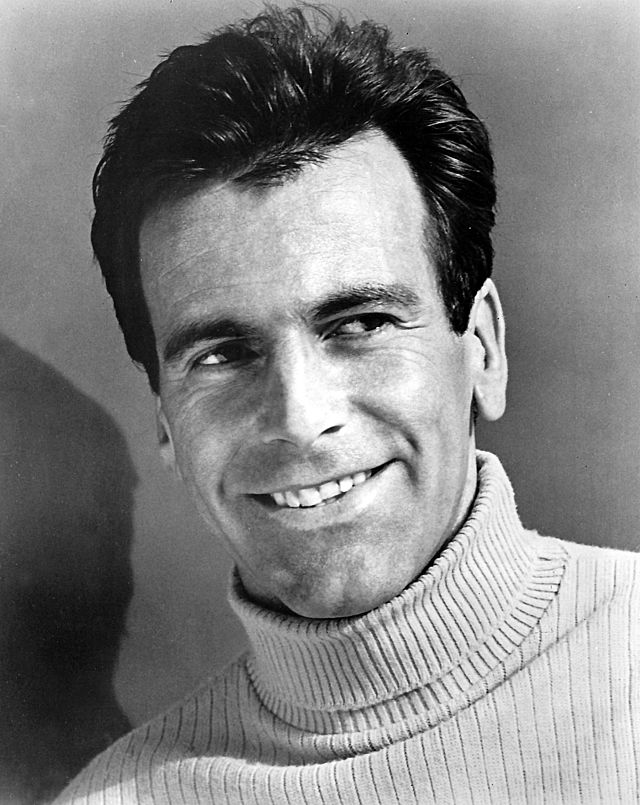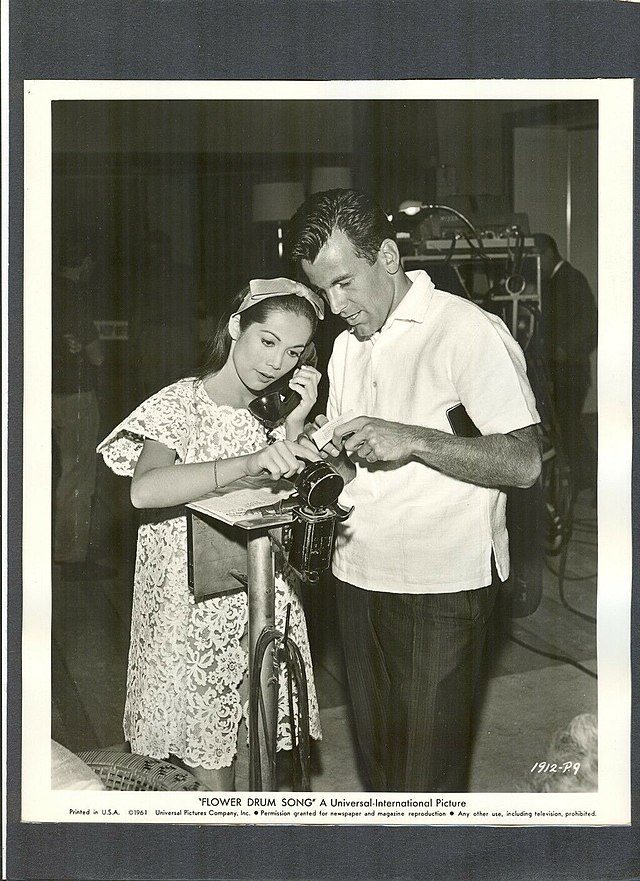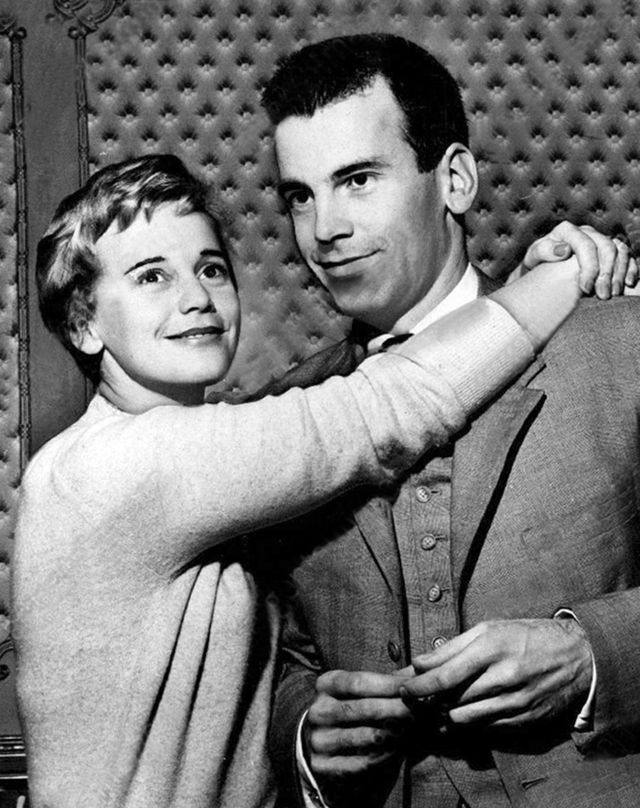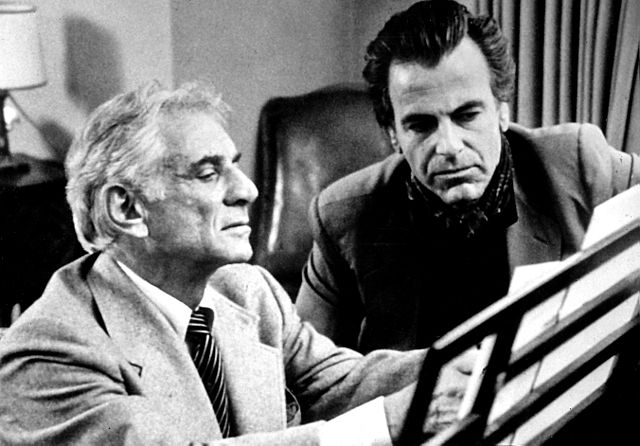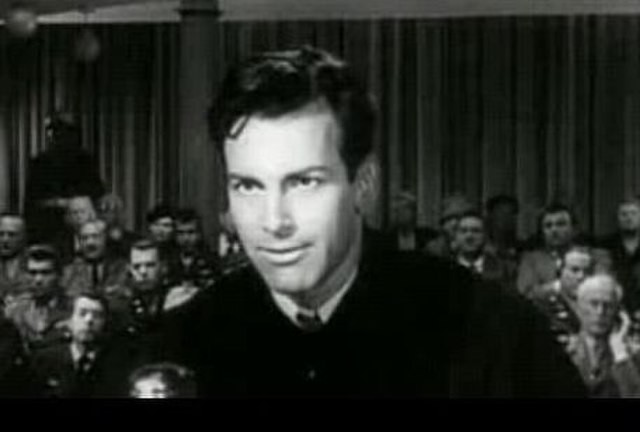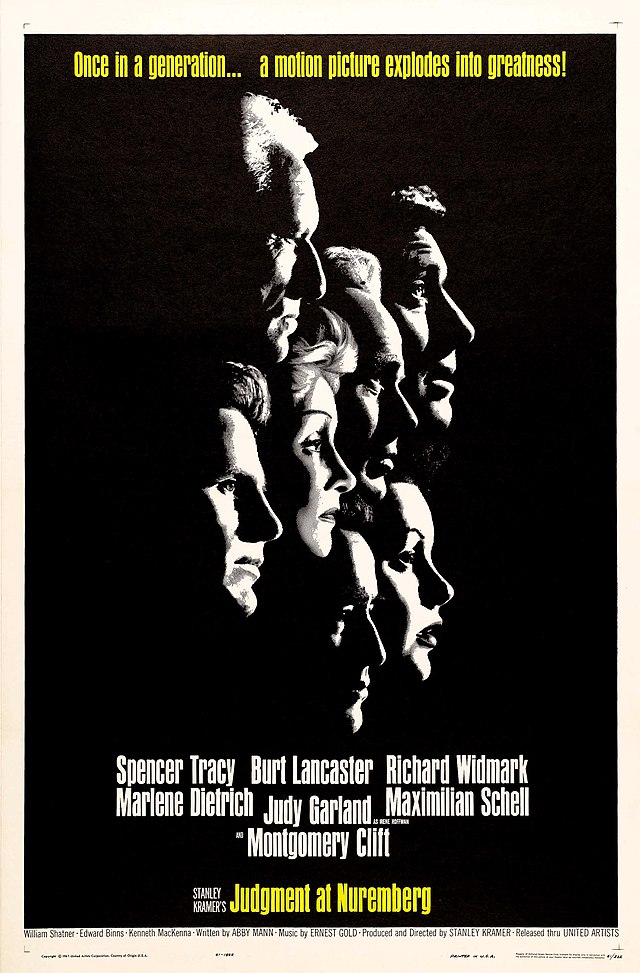Maximilian Schell
back| Full Name | Maximilian Schell |
| Stage Name | Maximilian Schell |
| Born | December 8, 1930 |
| Birthplace | Vienna, Austria |
| Died | February 1, 2014 |
| Buried | Preitenegg Cemetery, Carinthia, Austria |
| Married to | Iva Mihanovic (married in 2013 until his death in 2014) |
| Children | One daughter, Nastassja Schell (born 1989, with a previous relationship) |
| Notable films | Judgment at Nuremberg (1961) - The Man in the Glass Booth (1975) - Topkapi (1964) - The Odessa File (1974) |
Maximilian Schell
The Intellectual Titan of Cinema
Maximilian Schell (1930–2014) was a celebrated Austrian-Swiss actor, director, and producer known for his intellectual depth and commanding screen presence.
Born in Vienna to a culturally rich family, his family fled to Switzerland during the Nazi annexation of Austria. Schell's breakthrough came with Judgment at Nuremberg (1961), earning him an Academy Award for Best Actor.
A multilingual talent, Schell also excelled as a pianist and painter. His career garnered numerous accolades, including Golden Globes and lifetime achievement awards.
Related
Maximilian Schell (1930 – 2014)
Biography and Movie Career
Maximilian Schell was one of the most prominent and respected actors of his era, known for his commanding screen presence, intellectual depth, and ability to navigate roles of profound moral complexity. His life story, spanning more than eight decades, is one of artistic passion, personal resilience, and lasting influence on cinema and theater.
________________________________________
Early Years and Family Background
Maximilian Schell was born on December 8, 1930, in Vienna, Austria, into a family steeped in culture and the arts. His father, Hermann Ferdinand Schell, was a renowned poet and novelist, while his mother, Margarethe Noé von Nordberg, was an accomplished actress. Maximilian was the youngest of four siblings, all of whom pursued creative paths, including his sister Maria Schell, who achieved international fame as an actress.
In 1938, the Schell family fled Austria following the Nazi annexation, relocating to Zurich, Switzerland. The move was motivated by their opposition to the Nazi regime and the dangers posed to their family's values and safety. In Switzerland, Maximilian grew up in an intellectually vibrant household that nurtured his artistic sensibilities.
Schell initially considered a career in academia, studying philosophy and art history at the Universities of Zurich and Basel. However, his love for storytelling and performance eventually led him to the stage.
________________________________________
Path Towards Success
Maximilian Schell made his acting debut in 1952, performing in stage productions in Switzerland and Germany. His first foray into film came with Kinder, Mütter und ein General (1955), a German war film. However, his international breakthrough came in 1961 with Judgment at Nuremberg, a courtroom drama about Nazi war crimes. His portrayal of Hans Rolfe, a defense attorney tasked with defending the indefensible, earned Schell the Academy Award for Best Actor. This made him one of the first German-speaking actors to win an Oscar after World War II, a milestone that highlighted his ability to bridge cultural and historical divides.
Throughout the 1960s and 1970s, Schell became a prominent figure in both European and Hollywood cinema, starring in films such as Topkapi (1964), The Odessa File (1974), Cross of Iron (1977), and Julia (1977). He was often drawn to complex, morally ambiguous characters, reflecting his intellectual depth and fascination with the human condition.
Schell also ventured into directing, earning acclaim for First Love (1970), an adaptation of a story by Ivan Turgenev, which was nominated for an Academy Award for Best Foreign Language Film. His 1984 documentary Marlene, a portrait of Marlene Dietrich, showcased his ability to merge cinematic storytelling with deeply personal insight.
________________________________________
Personal Life and Marriages
Maximilian Schell's personal life was as complex and rich as his professional career. Known for his charm, intelligence, and charisma, he had several high-profile relationships before marrying Iva Mihanovic, a German opera singer, in 2013. The couple shared a love of music and the arts, and their marriage, though brief due to Schell's passing, was described as deeply fulfilling.
Schell had one daughter, Nastassja, born in 1989 from a previous relationship with the Austrian actress Natalya Andrejchenko. Although his career often kept him away from home, Schell remained deeply connected to his family and took great pride in their achievements.
________________________________________
Passions and Interests
In addition to his work in film and theater, Schell was a man of many talents and passions. A gifted pianist, he often performed music publicly, blending his love for performance with his deep appreciation for classical compositions. He also painted, finding solace and expression in visual art.
Schell was multilingual, fluent in German, English, and French, which allowed him to work across borders and cultural divides. He was also an outspoken advocate for the arts and cultural preservation, often reflecting on the importance of storytelling in understanding humanity's shared history.
________________________________________
Later Years and Death
In his later years, Schell continued to act and direct, appearing in films such as Deep Impact (1998) and in numerous television productions. He received lifetime achievement awards and recognition for his contributions to cinema and culture.
Maximilian Schell passed away on February 1, 2014, at the age of 83, in Innsbruck, Austria. His death followed a sudden and severe illness, reportedly from complications related to pneumonia. His passing marked the end of an era, leaving behind a legacy of powerful performances and artistic integrity.
________________________________________
Legacy
Maximilian Schell remains a towering figure in cinema history, celebrated for his intellect, talent, and ability to bring depth and humanity to his roles. His life story, marked by displacement, resilience, and creative triumph, is a testament to the transformative power of the arts.
Maximilian Schell wins the Academy Award for Best Actor in 1962
Maximilian Schell’s Acting Style
Maximilian Schell's acting style was characterized by its intellectual depth, emotional intensity, and remarkable versatility. A product of his rich cultural upbringing and classical training, Schell brought a nuanced, layered approach to his roles, making him one of the most compelling performers of his generation. His performances often conveyed a deep understanding of human complexity, seamlessly blending intellect with raw emotion.
________________________________________
Commanding Presence and Charismatic Authority
Schell possessed a magnetic screen presence, with his tall frame, piercing eyes, and resonant voice giving his characters an air of authority and gravitas. Whether portraying a defense attorney, a morally conflicted soldier, or a tormented artist, Schell had the ability to dominate a scene without overpowering it. He had an innate sense of timing and subtlety, often using quiet, deliberate gestures or pauses to heighten tension and draw viewers into his characters' inner worlds.
________________________________________
Intellectual Approach to Roles
Known for his intellect, Schell approached his roles with meticulous preparation and a deep commitment to authenticity. This was especially evident in his portrayal of Hans Rolfe in Judgment at Nuremberg (1961), where his impassioned courtroom speeches and subtle expressions conveyed the moral ambiguities of defending war criminals. Schell was not afraid to tackle controversial or morally challenging roles, often exploring the gray areas of human behavior.
Schell’s performances were informed by his background in philosophy and art history, which allowed him to bring a broader perspective to his characters. His portrayals often felt like intellectual explorations, as if he were engaging in a dialogue with the audience about the moral dilemmas his characters faced.
________________________________________
Emotional Range
Despite his intellectual leanings, Schell's acting was deeply emotional and often profoundly moving. He was adept at conveying vulnerability and inner turmoil, which made his characters relatable even when they were flawed or morally ambiguous. In films such as The Pedestrian (1973) and The Man in the Glass Booth (1975), Schell delivered performances that were as much about what was left unsaid as what was spoken, using his expressive face and body language to communicate layers of meaning.
________________________________________
Versatility Across Genres
Schell’s career showcased his ability to adapt to a wide range of genres, from historical dramas to thrillers, science fiction, and even comedies. He could effortlessly shift from the stoic gravitas required for a war drama to the playful charm necessary for a heist film like Topkapi (1964). This versatility allowed him to avoid typecasting, making him a truly international actor who worked comfortably in both European and Hollywood cinema.
________________________________________
Collaboration and Directing
Schell's experiences as a director also influenced his acting. He had a strong understanding of narrative structure and character development, which he used to enrich his performances. His collaborations with renowned directors like Stanley Kramer, Ingmar Bergman, and Sydney Lumet were marked by his willingness to push creative boundaries and embrace complex characters.
________________________________________
Signature Traits
• Expressive Voice: Schell's voice was one of his most powerful tools. Whether delivering a fiery monologue or a whispered confession, his voice could convey a wide range of emotions, adding depth to his performances.
• Moral Ambiguity: Many of Schell’s most memorable characters were morally complex, reflecting his fascination with human frailty and ethical dilemmas.
• Intensity and Restraint: Schell’s performances were often marked by an intensity that never felt forced. He balanced moments of explosive emotion with quiet, introspective scenes, creating a dynamic and compelling portrayal.
________________________________________
Legacy
Maximilian Schell's acting style combined the best of European artistry with the accessibility of Hollywood storytelling. His performances were not just about entertaining audiences but also about provoking thought and evoking empathy. Schell’s ability to delve into the human psyche, coupled with his commanding presence and intellectual rigor, ensured his place as one of cinema's great actors.
Personal Quotes:
• "I think all the poets and artists have always written for peace and love, and it hasn’t changed much in the last two or three thousand years. But we hope."
• "First love is first love, first marriage is first marriage, disappointment is disappointment."
• "I'm always happy when I'm left alone, but if somebody comes and is nice, then we talk."
• "A conversation goes sometimes into personal things and that's nicer. You look to each other and you have a different picture, you get into a relationship."
• "I think there's a poet who wrote once a tragedy by Shakespeare, a symphony by Beethoven and a thunderstorm are based on the same elements. I think that's a beautiful line."
What Others said about Maximilian Schell
Maximilian Schell was widely respected in the film industry, and his colleagues often praised his talent and character. Director Stanley Kramer, who worked with Schell on Judgment at Nuremberg, described him as "a man of great intellect and passion, bringing depth to every role he undertook."
Actress Vanessa Redgrave, Schell's co-star in Julia, remarked, "Maximilian's performances were a masterclass in acting; he had the rare ability to convey profound emotion with subtlety and grace."
Film critic Roger Ebert noted, "Schell's presence on screen was commanding; he had a way of drawing audiences into the moral complexities of his characters." These reflections highlight the high regard in which Schell was held by his peers and critics alike.
Awards and Recognition
Academy Awards:
• 1962: Won Best Actor for Judgment at Nuremberg (1961).
• 1976: Nominated for Best Actor for The Man in the Glass Booth (1975).
• 1978: Nominated for Best Supporting Actor for Julia (1977).
Golden Globe Awards:
• 1962: Won Best Actor in a Motion Picture – Drama for Judgment at Nuremberg.
• 1976: Nominated for Best Actor in a Motion Picture – Drama for The Man in the Glass Booth.
• 1978: Nominated for Best Supporting Actor – Motion Picture for Julia.
• 1993: Won Best Supporting Actor in a Series, Miniseries, or Motion Picture Made for Television for Stalin (1992).
Primetime Emmy Awards:
• 1992: Nominated for Outstanding Lead Actor in a Miniseries or a Special for Miss Rose White.
• 1993: Nominated for Outstanding Supporting Actor in a Miniseries or a Special for Stalin.
German Film Awards:
• 1984: Won Film Award in Gold for Best Performance by an Actor in a Leading Role for Morgen in Alabama.
• 1990: Received an Honorary Award for his outstanding contributions to German cinema.
Other Recognitions:
• 1961: Won the New York Film Critics Circle Award for Best Actor for Judgment at Nuremberg.
• 2000: Received the Mary Pickford Award from the International Press Academy for Outstanding Artistic Contribution to the Entertainment Industry.
• 2002: Awarded the Austrian Cross of Honour for Science and Art, 1st class.
• 2009: Honored with the Bambi Award for Lifetime Achievement.
• 2011: Received the Honorary Award of the Bernhard Wicki Film Award – The Bridge.
Movies Starring Maximilian Schell
1955
• "Kinder, Mütter und ein General" (Children, Mothers, and a General): Schell's film debut portrays the story of five mothers confronting a German general at the front line, highlighting the futility of war.
1958
• "The Young Lions": Schell plays Captain Hardenberg in this World War II drama that follows the lives of three soldiers—one German and two Americans—depicting their contrasting experiences during the war.
1961
• "Judgment at Nuremberg": In his Academy Award-winning role, Schell portrays Hans Rolfe, a defense attorney in the post-World War II Nuremberg Trials, exploring themes of justice and moral responsibility.
1964
• "Topkapi": Schell stars as a charming thief involved in an elaborate heist to steal a jeweled dagger from a museum in Istanbul, blending elements of comedy and suspense.
1965
• "The Deadly Affair": Schell plays Dieter Frey in this espionage thriller, where a British agent investigates the apparent suicide of a government official, uncovering a web of deceit.
1968
• "Counterpoint": Schell portrays General Schiller, a German officer who captures an American orchestra during World War II, leading to a battle of wits between art and war.
1969
• "Krakatoa, East of Java": Schell stars as Captain Hanson, leading a perilous expedition to recover a sunken treasure near the erupting Krakatoa volcano.
1974
• "The Odessa File": Schell plays Eduard Roschmann, a former Nazi SS officer, in this thriller about a journalist uncovering a secret organization of former SS members.
1975
• "The Man in the Glass Booth": Schell delivers a powerful performance as Arthur Goldman, a Jewish businessman who is abducted and put on trial for war crimes, blurring the lines between victim and perpetrator.
1977
• "Julia": In a supporting role, Schell portrays Johann, a member of an anti-Nazi resistance group, in this drama about a woman's efforts to help her childhood friend during World War II.
1979
• "The Black Hole": Schell stars as Dr. Hans Reinhardt, a scientist commanding a spaceship on the edge of a black hole, in this science fiction adventure exploring the unknown.
1980
• "The Diary of Anne Frank" (TV Movie): Schell portrays Otto Frank, the father of Anne Frank, in this adaptation of the young girl's poignant wartime diary.
1981
• "The Chosen": Schell plays Professor David Malter, a dedicated scholar navigating the complexities of faith and friendship in 1940s Brooklyn.
1984
• "Marlene" (Documentary): Schell directs and appears in this documentary about Marlene Dietrich, offering an intimate look into the life of the legendary actress.
1990
• "The Freshman": In a comedic role, Schell plays Larry London, a flamboyant film producer with mob connections, adding a humorous twist to the crime genre.
1992
• "Stalin" (TV Movie): Schell portrays Vladimir Lenin in this biographical drama about the rise and rule of Joseph Stalin, delving into the complexities of Soviet leadership.
1998
• "Deep Impact": Schell plays Jason Lerner, the estranged father of journalist Jenny Lerner, in this disaster film about a comet threatening Earth.
2002
• "My Sister Maria" (Documentary): Schell directs and narrates this personal documentary about his sister, actress Maria Schell, exploring her life and career.
All His Movies:
1950s
• Kinder, Mütter und ein General (1955)
• The Plot to Assassinate Hitler (1955)
• Jackboot Mutiny (1955)
• The Young Lions (1958)
1960s
• Hamlet (1960)
• Judgment at Nuremberg (1961)
• The Condemned of Altona (1962)
• Topkapi (1964)
• Return from the Ashes (1965)
• The Deadly Affair (1966)
• Counterpoint (1968)
• The Castle (1968)
• First Love (1970)
1970s
• The Pedestrian (1973)
• The Odessa File (1974)
• The Man in the Glass Booth (1975)
• End of the Game (1975)
• Cross of Iron (1977)
• Julia (1977)
• The Black Hole (1979)
• Tales from the Vienna Woods (1979)
1980s
• The Diary of Anne Frank (1980)
• The Chosen (1981)
• Marlene (1984)
• Peter the Great (1986)
• The Rose Garden (1989)
1990s
• The Freshman (1990)
• Stalin (1992)
• Candles in the Dark (1993)
• Abraham (1994)
• Deep Impact (1998)
• Left Luggage (1998)
2000s
• My Sister Maria (2002)
• The Brothers Bloom (2008)

